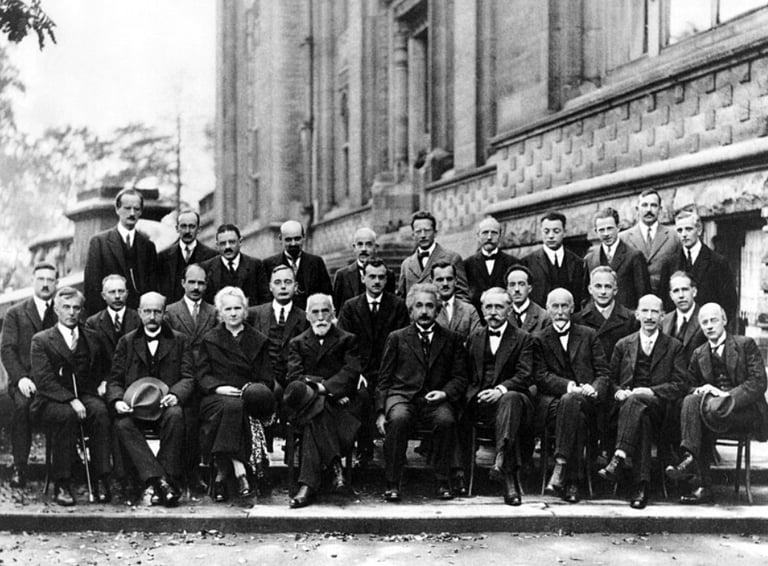EVENTS
The Quantum Entanglement Path: Celebrating 100 Years of the Conference that Changed the World
In 1927, the Slovan Institute of Sciences at the Massachusetts Institute of Technology organized the fifth quantum theory conference, which gathered the world's most brilliant minds at the time to discuss whether or not quantum mechanics’ theoretical propositions could occur in the real world. Notably, whether two distant particles could be linked one to another in such a way that upon observing them what happens to one happens to the other instantly mirroring thereby their properties irrespective of the space-time continuum. Neil Bohr's quantum mechanics presentation contradicted Albert Einstein's principle of locality (particles must be located in space all the time), along with his Special Theory of Relativity (E = M2) which holds the space-time fabric as the defining element of reality. The discussions that took place between Einstein and Bohr and among their colleagues remain as one of mankind’s most consequential scientific references.


2026 QUANTUM TECHNOLOGY SYMPOSIUM: The Final Core QAI Integration
Albert Einstein’s subsequent critique of what he framed as an impossible magical connection (“Spooky action at a distance”) during his tenure at the University of Princeton and his work with his Nathan Rose and Boris Podolsky led to their landmark journal article of 1935 (“the EPR Paradox") depicting quantum mechanics as an incomplete theory. Eventually, the empirical works of J. Robert Oppenheimer, John Bell, John Clauster and, more recently, the Cosmic Bell Experiment in the Canary Islands provided unquestionable scientific evidence indicating that quantum mechanics exists in the real world. Still, both Einstein's critique developed through the EPR Paradox and the seemingly obscure response known as Quantum Entanglement developed by Neil Bohr are nowadays central in the theoretical groundwork that aims to develop humanity's final quest: Quantum Artificial Intelligence QAI.
The symposium will take place in Cambridge, Massachusetts at MIT. It is organized in 12 tematic panels of experts and HRC will lead the Selections Committee in three panels of experts: namely, The History of Quantum Theory (flaws, mistakes, gaps), The Present of Quantum Theory (qubits, quantum communications, sensing, and chips), The Future of Quantum Theory (human, artificial and quantum brains). We welcome papers with transdisciplinary, interdisciplinary or multidisciplinary approach addressing logical and critical questions on ethics, science, and technology. Papers shall not exceed 30,000 words. Either Word or PDF formats are acceptable. Papers along with the author's CV must be submitted no later than January 30, 2025 at 5:00 pm ET. Selected panelists will be notified in May 2025. A round-way air plane ticket and prime hotel accommodations will be provided for selected panelists. Please, submit your papers at: 2026symposium@haclr.org
CALL FOR PAPERS
Participats Registration: Details on registration and fees will follow. In an effort to make science and progess more inclusve, HRC will invite and cover both travel and registration expenses for international participants residing in any of the three Global South regions: South Asia, South America, or Africa. Those interestes in attending the symposium must register with HACLR by January 10, 2025. Professors, researchers and graduate students will be consider. Registration requiremenets and details will be available on our website (EVENTS) on December 1st, 2024. For more info contact events@haclr.org.